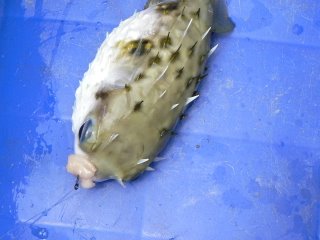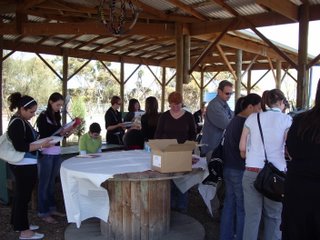Last night, I went to a session at Readings in Port Melbourne, where the guest speakers were Cate Kennedy and Paddy O'Reilly. They were there to talk about novellas, principally because Five Mile Press has just published a collection of four, including the one that won the Meanjin Novella Competition. Cate edited the collection and Paddy's was one of the four in it.
It's called
Love and Desire because that was the theme of the competition - at the time (June last year) it seemed like everyone I knew was writing a novella to enter. Prize was a few thousand dollars and promise of publication. I even thought about it! But didn't.
The discussion was very interesting and quite wide-ranging, involving the audience (we were all gathered in the coffee shop so it was cosy and easy to chip in) and throwing up some good quotes which I will endeavour to include here. Cate began by saying, "In the novella, it's like the short story - there is nowhere to hide. In a novel you can write your way out of trouble." Paddy's story was 45,000 words to start with, and was cut down to around 25,000. She only achieved this by taking out huge chunks rather than cutting sentences and paragraphs, leaving her with a story that has almost-self-contained chapters.
Cate, as editor, also had to cut one of the other stories quite a lot and work with the author. She said, "With the novella, you need to have the same satisfying experience as with the novel, but with less words. You also need to have your hands on the wheel in terms of imagery and metaphor when working with shorter prose." They both agreed that imagery and metaphor help you to say a lot more with less words, an essential in short fiction.
There was also discussion about what is the difference between a novella and a YA novel, if they are both of a similar length? Various comments included that a YA novel has a teen protagonist, more plot, plenty of pace, less sophistication, a theme that is more about identity and rite-of-passage. I guess I would agree with most of that - except you can find all of those things in a novella for adults as well. I think most novellas (at least the ones that were discussed last night) are literary fiction, and therefore the author's purpose and audience is different, right from the first word written. That changes language, theme, complexity - everything the writer is trying to achieve. Often people look at the finished book and say it is this or that, based on a judgement of what they see, yet they forget that the writer had to have an intention right from the beginning, so isn't it more useful to ask what that might have been?
Anyway, towards the end Cate talked about all the novellas she read for selecting the final three (plus the competition winner) - her one criteria that stood above the others was "Which stories stayed with me? Which one was I still thinking about in the shower, or the car? Which ones energised or inspired me?"
When asked, she said that too many of them were really novels - that writers had started with concepts or stories that were too big for the word limit, and so there was too much telling, too much trying to cram in a lot of information. Someone asked about cutting words - how do you learn to self-edit like that? Cate's answer - take one of your short stories and cut it by half. Be ruthless and see what you end up with.
Paddy added that you should take off the beginning and the end and see what you are left with in the middle - if there's nothing there, well ...
It was a very good session, with lots of great input from the audience and some useful comments and questions (including from the publisher and sales people from Five Mile Press, who were also there).














